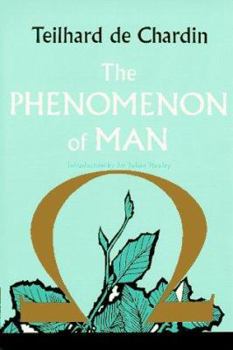The Phenomenon of Man
Select Format
Select Condition 
Book Overview
"A profound book of great distinction and originality. . . . A brilliant synthesis of the evidence with respect to man's evolutionary direction. . . . I cannot imagine anyone reading this book who will not be profoundly influenced by it, and who will not wish to read it several times over, for it is a great work by a great man--one of the most spiritually erudite of our time." --New York Times
Visionary theologian and evolutionary theorist Pierre Teilhard de Chardin's analysis of human evolution
Pierre Teilhard De Chardin was one of the most distinguished thinkers and scientists of our time. He applied his whole life, his tremendous intellect, and his great spiritual faith to building a philosophy that would reconcile Christian theology with the scientific theory of evolution, to relate the facts of religious experience to those of natural science.
In this timeless book, which contains the quintessence of his thought, Teilhard argues that just as living organisms sprung from inorganic matter and evolved into ever more complex thinking beings, humans are evolving toward an "omega point"--defined by Teilhard as a convergence with the Divine.






